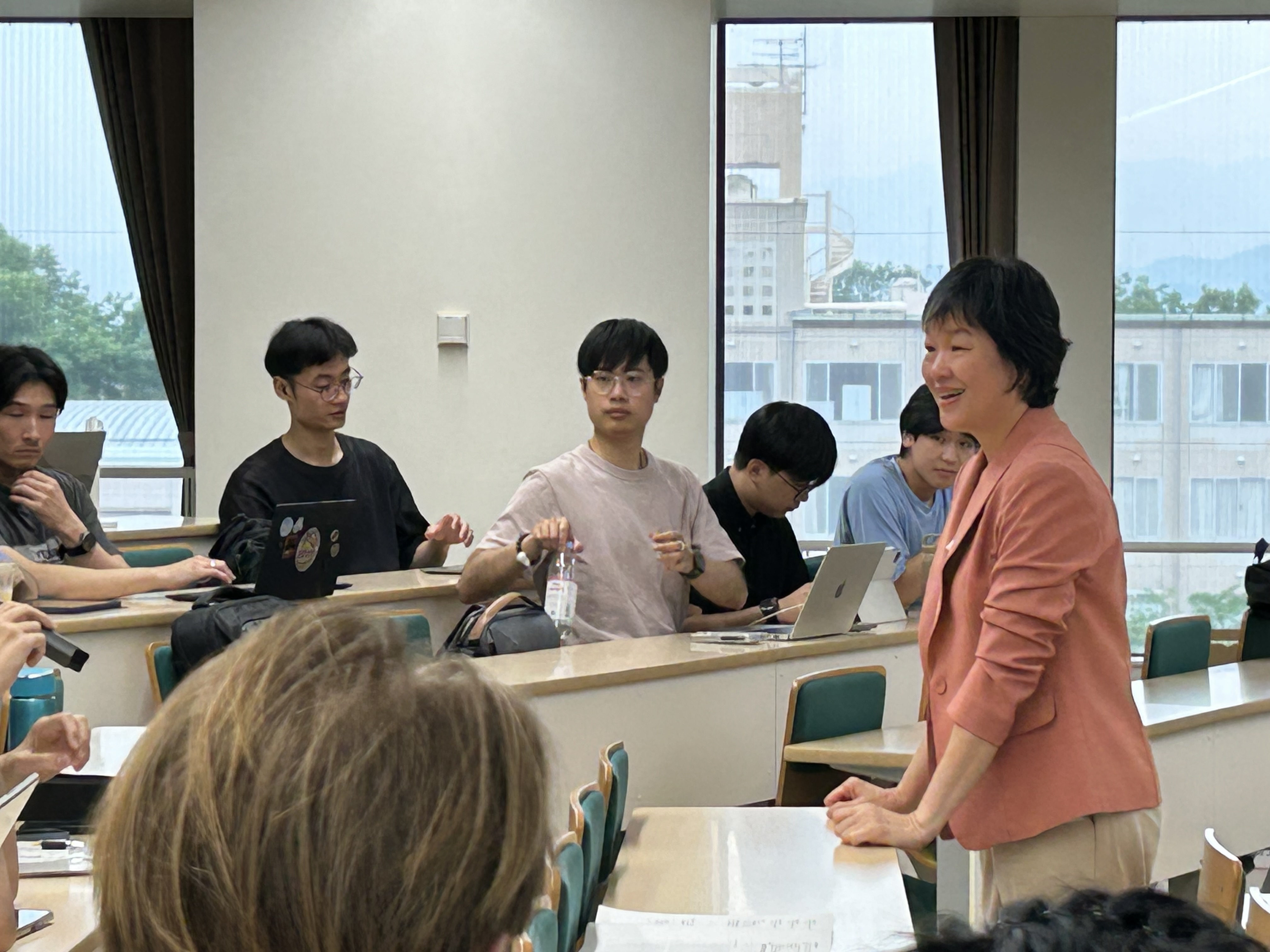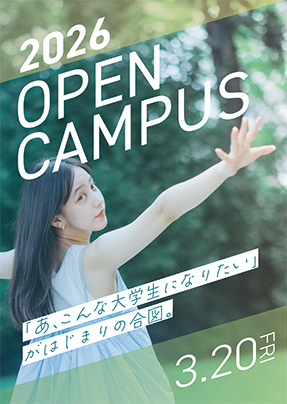Empowering Communities Through Sustainable Business: Prof. Duangjai Lorthanavanich’s Lecture

Talk by Prof Duangjai Lorthanavanich, Director for Integrated Bachelor's and Master's Degree Program in Business And Accounting (IBMP) and Director of Ageing Business and Care Development Center (ABCD) presented her excellent talk/speech to the students of the Sustainable Management Class (Prof Lim Tai Wei) on 2 July 2025 in Soka University Business Faculty. She was kindly chaperoned by Professor Takahashi Shinsaku and Professor Yasutake Taeko.
While Thammasat University is a distinguished old institution, Prof Duangjai's team is new and their work contributed to sustainable development of local communities of farmers in Thailand. She was keen to get the Thai farmers out of poverty, through the acquisition of fertilizer that is made naturally from organic cow dung so that the farmers need not buy more expensive chemical fertilizer. This resulted in costs saved. This knowhow was transferred from the students to the farmers. This was the first step to solving the poverty of the farming community in Thailand. The Thai farmers were able to sell the vegetables grown using organic fertilizers to other regions within Thailand.
In the three years after the introduction of self-made fertilizers from cow dung, the farmers turned over a profit by exporting farming products to the neighbouring regions near the farmers' abode. And the business became sustainable financially, confirmed in a follow-up checking procedure made by Prof Duangjai's team. And the farmers became financially sustainable and self-reliant in their local economy.
Prof Duangjai's team members also taught the farmers accounting techniques so that the farmers became financially literate. Many of the farmers in Northern Thailand are elderly, as there is a high ratio of elderly in the aging northern and northern regions. Thus, new skills like accounting techniques do not come easily or naturally to them.
Prof Duangjai proceeded to show a video of the challenges faced by Thai villages when it comes to growing rice. The farmers in the video articulated the difficulties of growing due to the lack of rainwater for example.
Students worked in stages in identifying the real world problems with local community stakeholders. The student teams assigned as project advisors to different local community stakeholders and these students coordinated with community business in rural areas through listening to their situation problems and goals. All team members then focus on increasing the revenues for the local community businesses.
An important aspect is that students listened attentively to the community's problem in the first meeting. Community members also have an opportunity to look at each of proposals that the students presented and selected the project that works for them. This is based on a needs-matching format.
The teams are active in areas like Rayong province in the central Thai region. They would go to the regions and discuss how to solve the challenges and issues. It is a stakeholder approach. The students then explain the methodologies for entrepreneurship to the community. The students will also help to calculate the costs of the projects before creating prototypes and market plans for the interested local community members. And help them identify the customer groups and then purchase the ingredients necessary for the products. In short, the procedure is outlined in the following slogan: Think of the price, find the products and customers and then bring the revenues 20% upwards. This is known as the 'Thammasat Model'.
There is a rigorous test involved in making the local communities think about what they need, and the students may help conceptualize these project needs alongside the local community farmers. If the test is not passed, the project proposal will be stopped.
The students also help with identifying the distributional routes for the products and services. The local community businesses are imparted the knowledge of selling these products even if/though the farmers are experts in growing these fruits and vegetable products. Three levels of stakeholder: the student groups, the local community and the customer/private sector supports these initiatives.

A second video was shown. It was about riceberry product which was low margins and low profit but the Thammasat students imparted the knowledge to the farmers and taught them how to do costing and finally the riceberry snack was developed and sold to Singapore cafes as well as through Amazon e-commerce route. This methodology can be expanded to other Thai products like Cassava crispy chips, mulberry tea, lemon tea and longan tea.
14 years ago, Prof Duangjai went to the rural areas but now they are also focusing on street food in Bangkok in outdoor settings (the street food hawkers). The Bangkok project was started approximately 3 years ago. Prof Duangjai then explained the Talat Phlu project to the students, a project locale which was made into a movie now screening in Shinjuku. Prof Duangjai screened a snippet of the movie which showed street hawkers and store owners hard at work.
These street hawkers met serious challenges during the Covid-19 period. Prof Duangjai's project helped the street hawkers retail their food online. At the height of Covid-19, the hawkers were not able to project the end time/point of the Covid period. So Prof Duangjai helped to repackage the Talat Phlu food products like the steamed rice dumplings wrapped traditionally in bamboo leaves to plastic wrappings that makes it possible for delivery sales.
Prof Duangjai also taught the street food hawkers digital skills so that they can sell their products even during the Covid19 period through internet-based e-commerce. Prof Duangjai taught them how to use Line the social media platform with student volunteers as instructors. The students contributed to this project even though this was not a compulsory course for their academic accreditation.
The course was a 3-months training for 600 students (50% of them are street food owners). Prof Duangjai's team set a rule that they will teach the course using tik tok and other social media platforms and 20 individuals were selected amongst the participants to go for further courses to commercialize their operations.
Prof Duangjai's team also taught them how to decorate their shops and made them more attractive and increase diversity of their products to include more Japanese and Korean food items beyond yakitori. Prof Duangjai's team footed 50% of the budget for these hawker transformations while the street food vendors footed the other half.
This turned out to be a good collaboration. Prof Duangjai also helped with product and brand development for the street-side cafes to include more products like Taro milk, Oh Liang, Strawberry milk. Revenues increased by 30%.
There were challenges in the course delivery by Prof Duangjai's team. The rural farmers have skills in growing food but not in logistics and delivery. Urbanites may have less time for course-taking in Facebook, LINE and TikTok. For the elderly students, Prof Duangjai's team have to carefully and slowly impart knowledge.
In her Q&A, Prof Duangjai highlighted the importance of sincerity when trying to formulate projects with local communities, and it is important to listen to the needs of these local community members while providing more suggested solutions to the project participants.
Students asked many questions during Professor Duangjai's lecture in Soka University, including: the jobs that Prof Duangjai's students eventually ended up in, and utilitarianism of cow dung developed in the Thai villages. They also asked if Prof Duangjai had gone beyond the farming communities (Prof Duangjai also helped with producing attractive bags, mango gummies, mango jams and shirts for local communities).
Finally, in such areas, Prof Duangjai aspires and hopes for more joint projects between her university and Soka University. This is to capitalize on Thammasat's long history with Soka University, more than 50 years.


